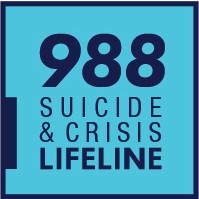Everyone can do their part to help prevent suicide. Take the time to learn the warning signs and know the risk factors. Be mindful if any of the warning signs are new, have increased, or seem to be the result of a loss, change, or event. If you recognize any of these signs for yourself or with someone else, please call or text the Suicide and Crisis Lifeline at 988.
-
Suicide & Crisis Lifeline
- Donate





















